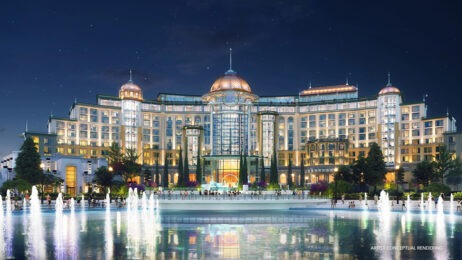Changes in the events industry are so palpable you’d be able to touch them—if it weren’t for social distancing. A changing age demographic of meeting professionals, the increasing role of technology in the industry and the need for stronger cybersecurity are among the major shifts causing meeting venues to rethink their strategy and role in the planner-venue relationship.
This evolution was evidenced in “Meeting Room of the Future” by IACC, in which global venue operators and suppliers across three continents were surveyed to help meeting planners gain insight into how their changing needs will be met.
It’s All About Experience
Meetings are all about the experience these days, as every planner knows. But whose job is it to make the experience memorable and relevant, planner or supplier? According to the study, more operators now feel that role rests in their hands, as 94 percent of venue specialists believe they need to provide a “memorable experience” for clients and their attendees, compared to just 57 percent in 2018. The remaining 6 percent believe it’s “sometimes” their role.
This change can be traced in large part to the widening gap between event budget and cost. The study reads, “As event budgets stay relatively stagnant while costs are on the rise, meeting professionals are relying more heavily on their venue partners to help make choices that maintain the integrity of their brand experiences and education programs.”
Venues have responded by offering a wider variety of off- and on-site amenities and activities to help with creative elements of meetings. Team-building exercises, inventive meeting rooms and innovative F&B have become much more widely offered. For example, destinations such as Greater Orlando are home to venues and hotel properties that offer plenty of fun team-building exercises and F&B experiences, such as fly-fishing and falconry school at Grande Lakes Orlando, and The Stockroom, a speakeasy exclusively created for groups, at Orlando World Center Marriott.
Doing More with Less
Stagnant budgets and higher costs are forcing hard choices, and two-thirds of venues say planners are sacrificing experiences to stay within budget. In addition, planners are increasingly placing greater importance on technology, frequently at the expense of F&B.
Meeting Rooms and Productivity
Planners want spaces that are conducive to productive meetings. Venue operators agree. The study found that both operators and planners want their spaces to be “open,” “flexible,” “bright,” “fun” and “well-equipped with technology.”
Fortunately, open and flexible spaces are precisely what is needed in the COVID-19 era.
Nature and Productivity
Nature also plays a huge role in facilitating productivity. A study by Steelcase Event Experiences found that humans inherently want a connection with nature—a phenomenon called biophilia—even during meetings; elements such as fresh air, greenery and natural lighting can increase productivity and improve general well-being.
Of those surveyed, 73 percent said they provide opportunities for connection to nature. Respondents said they offer maps of walking and running trails, ambient soundscapes and outdoor spaces for events and/or recreational use.
Digitalizing the Meeting Space
Virtual reality (VR) tours have been trending in recent years and only show signs of increasing in popularity. VR tours cut out need for travel, turning what can take a few days into only a few hours. Thirty-two percent of respondents already offer VR tours and 46 percent plan to offer them within the next 12 months, according to the study.
VR tours require a lot of bandwidth and up-to-date internet infrastructure, something which nearly three-quarters (73 percent) of participants have invested in over the past two years.
COVID-19 Considerations
Many of those surveyed believe some types of face-to-face meetings will see a quicker recovery than others. More than half (55 percent) of respondents said small local and regional events will thrive before national and international groups gather, especially as long as United States citizens remain barred from entering Europe and other countries.




